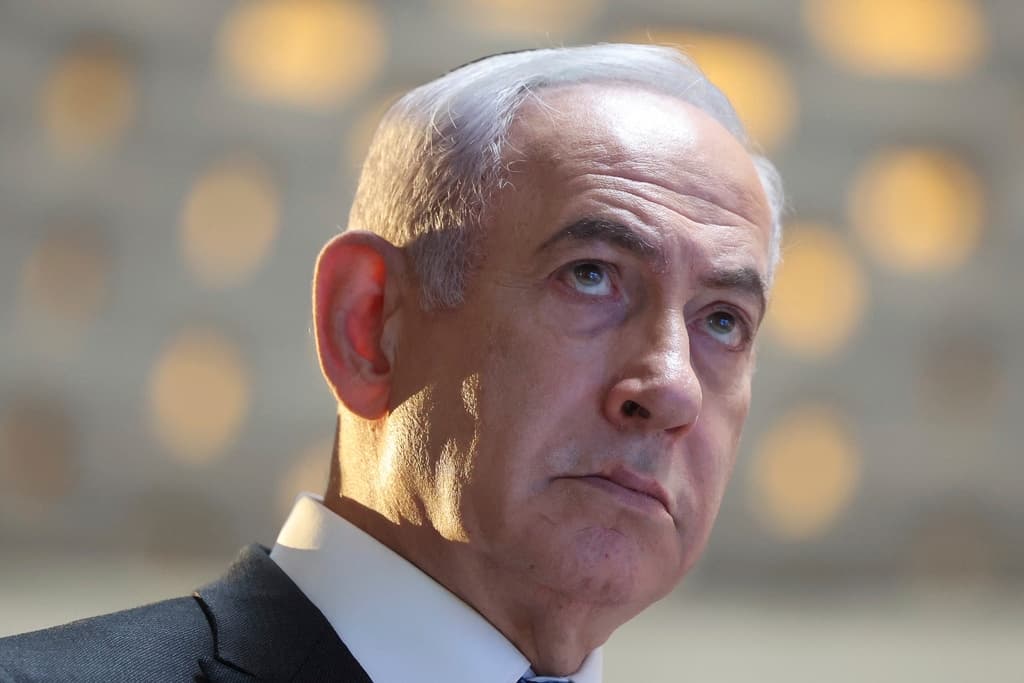I want them here, exclaims a daughter of a hostage during the recorded meeting with the Prime Minister, referring to those who are still being held captive by Hamas.
And I want to walk to Italy in a straight line, Netanyahu responds sarcastically.
The metaphor, in an analysis in the Israeli Haaretz called "astonishing", is one of several comments that have sparked criticism since they leaked from Friday's meeting between Netanyahu and a group of freed hostages and relatives of hostages in Gaza.
In one of the three recordings, released by TV channel Keshet 12, Netanyahu appears to lose patience when meeting participants repeatedly raise the hostages' situation and ask the Prime Minister to accept the agreement on the negotiating table.
What agreement? Which agreement? Whoever says there is an agreement on the table that we haven't accepted for some reason, they're lying, he responds angrily.
Compared to the Holocaust
In the recordings, Netanyahu claims that he is fighting for the country's continued existence in a situation where Hezbollah and Iran want to destroy Israel.
We're not talking about anything else but that agreement. "If we make an agreement, everything will be solved – Iran will stop", etcetera etcetera. It's madness. It's delusions, he says.
A freed hostage questions Netanyahu's emphasis on "victory" in the war against Hamas.
We've already lost on October 7, she says, referring to the terrorist- branded Islamist movement Hamas' brutal attack on Israel, which marked the start of the war.
In the recording, Netanyahu quickly objects – and compares to the mass murders of Jews during the Holocaust.
We didn't lose, he says, and continues:
During the Holocaust, there were 4,500 to 5,000 "October 7" every day.
Defended by his wife
In Haaretz' analysis of the recordings, Netanyahu is described as "heartless" and "totally insensitive". Among other things, he responds to a former hostage's account of torture during captivity by pointing out that he too was once a hostage – during a military exercise.
In Israeli media, his wife Sara is also criticized for "mouthing off" with former hostages and relatives and lacking empathy.
When the responsibility for the October 7 attack is raised, Sara Netanyahu defends her husband by blaming the country's military.
A leader is responsible for his army, responds one of the meeting participants.
Born in 1949 in Tel Aviv. Grew up in Jerusalem, later educated in the USA. In the army, Netanyahu served in an elite unit from 1967 to 1973, when he left the military with the rank of captain.
His older brother Yonatan was part of the same elite unit, but was killed in 1976 during an attempt to free Israeli hostages on a hijacked plane in Uganda. Little brother Benjamin had then begun a career in the USA, but moved back to Israel and entered politics.
Leader of the right-wing party Likud, Prime Minister of Israel 1996–1999 and 2009–2021. In 2022, he managed to regain power, but only after laboriously piecing together a coalition with, among others, small extremist parties.
The process contributed to the perception of Netanyahu as a power-hungry politician. Even before the Gaza war, regular, large street protests were held, then against the government's attempts to shift power from the courts to politics – legislative proposals that sparked accusations of the Prime Minister wanting to curb the judiciary to get away with his own corruption.
Since the outbreak of the Gaza war, large demonstrations against Netanyahu's way of waging war – and inability to bring home hostages held by terrorist-branded Hamas in Gaza – have been held in several Israeli cities.






